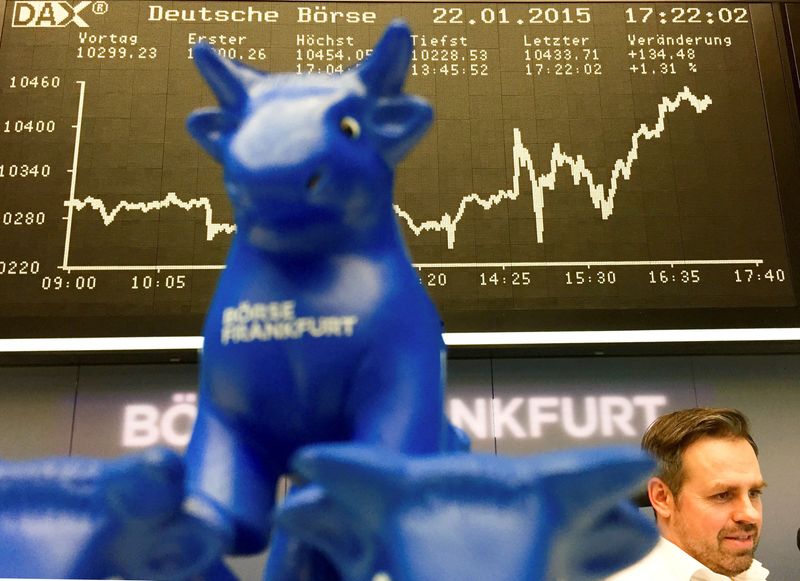Investing.com - European stock markets traded higher Wednesday, buoyed by renewed confidence that the major central banks' tightening cycle has peaked.
At 03:05 ET (08:05 GMT), the DAX index in Germany traded 0.1% higher, the CAC 40 in France traded up 0.1% and the FTSE 100 in the U.K. rose 0.1%.
German factory orders slump
Economic data of late have pointed to a likely recession for the eurozone in the final quarter of the year, but this has boosted investors’ optimism that the European Central Bank has ended its prolonged run of interest rate hikes.
Data released Wednesday showed that German factory orders slumped 3.7% on the month in October, a sharp drop from the revised 0.7% gain the prior month.
European retail sales are due later in the session, and are expected to rise 0.2% on the month in October, an annual drop of 1.1% as consumers continue to struggle with the combination of high interest rates and prices.
ECB policy maker Isabel Schnabel, a known hawk, suggested earlier this week that further tightening is "rather unlikely", adding to the growing sense that the major central banks are done hiking.
A degree of dovishness has also emerged from comments from Fed officials, including from Fed Chair Jerome Powell at the end of last week, while the Bank of Canada is likely to add to that narrative by holding interest rates unchanged at its policy meeting later in the day.
Tui looks at delisting from London
In corporate news, Tui AG NA (ETR:TUI1n) stock rose over 6% after the travel giant said it expected a 25% rise in operating profit this year after 2023 earnings surged on the back of strong demand, while it also announced a potential move of its stock market listing from London to Frankfurt.
Crude stabilizes; U.S. inventories grew last week
Oil prices stabilized Wednesday, but remained pinned near five-month lows as traders fretted over disappointing OPEC+ output cuts, China’s economic woes and an unexpected build in U.S. crude stockpiles.
By 03:05 ET, the U.S. crude futures traded 0.1% lower at $72.27 a barrel, while the Brent contract climbed 0.1% to $77.30 a barrel. Both benchmarks closed at their lowest level since July 6 in the previous session.
Crude prices have plummeted over the past six weeks, with a bulk of losses coming in recent sessions after the Organization of Petroleum Exporting Countries and allies, a group known as OPEC+, largely underwhelmed markets with its plans to cut production further in 2024.
Concerns over China's economic health, which could limit overall fuel demand in the world's second-largest crude consumer, also weighed, especially after rating agency Moody's (NYSE:MCO) cut its outlook.
Additionally, data from industry group the American Petroleum Institute showed that U.S. oil inventories grew 594,000 barrels in the week to Dec 1, compared to expectations for a draw of over 2 million barrels.
Additionally, gold futures rose 0.7% to $2,050.50/oz, while EUR/USD traded 0.1% lower at 1.0787.
